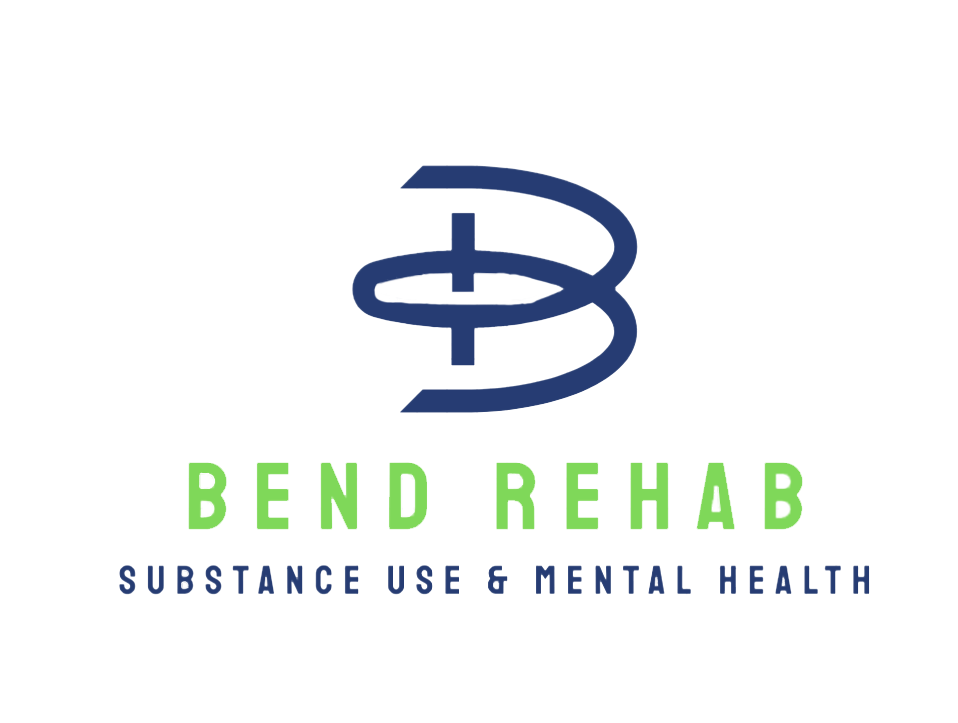Rehab for Alcoholism in Bend
Alcoholism is a serious disease that affects millions worldwide, and Bend, Oregon, is no exception. Recent statistics highlight the growing need for effective and accessible treatment options in the region. For those living in Bend who are struggling with alcohol use disorder (AUD), finding the right rehab for alcoholism in Bend can be an essential step toward recovery and long-term health. This guide will introduce the various types of rehab programs available in Bend, explain their approaches to treatment, and provide helpful tips for selecting the best program for yourself or a loved one. Whether you’re exploring options for yourself or supporting someone in their recovery, this post aims to provide the clarity and direction you need to take the first step.
The Impact of Alcoholism in Bend
Bend is celebrated for its stunning natural beauty, outdoor recreation opportunities, and tight-knit community. However, like many cities across the country, it faces significant challenges related to substance abuse and addiction. According to Deschutes County Health Services, alcohol-related deaths accounted for 57% of overdose deaths in the county in 2018, highlighting the impact of this ongoing issue. These statistics not only serve as a stark reminder of the problem but also emphasize the need for proactive solutions. Accessible rehab programs that cater to the unique needs of Bend residents are essential in addressing this crisis. These programs can offer personalized treatment plans, community support, and resources to help individuals on the path to recovery. By focusing on education, prevention, and rehabilitation, Bend has an opportunity to strengthen its community and support those struggling with addiction.
Types of Rehab for Alcoholism in Bend
When navigating the options for rehab for alcoholism in Bend, it’s important to understand the two main types of programs available: inpatient and outpatient treatment. Inpatient programs provide a structured, immersive environment where individuals receive round-the-clock care, while outpatient programs offer flexibility, allowing participants to continue their daily responsibilities while attending scheduled therapy sessions. Understanding these options is crucial for making an informed decision that aligns with your needs and lifestyle.
1. Inpatient Rehab
This type of rehab involves staying at a facility full-time for a specified period, usually ranging from 30 to 90 days, depending on the individual’s needs and the severity of their condition. During this time, patients receive structured support, including therapy sessions, medical care, and personalized treatment plans, all aimed at helping them recover in a safe and controlled environment.
Key features include:
- 24/7 medical support and supervision to ensure round-the-clock care, providing immediate assistance and monitoring for your health and safety at all times.
- A safe, controlled environment designed to help individuals focus on recovery, free from external triggers and everyday distractions that could hinder progress.
- Comprehensive care designed to support your recovery, including personalized therapy sessions, professional counseling to address underlying issues, and proven relapse prevention techniques to help you maintain long-term success.
Best for: Individuals with severe levels of alcohol dependence or those who benefit from structured environments.
2. Outpatient Rehab
Outpatient rehab provides a flexible option for individuals seeking treatment while allowing them to stay at home and maintain their daily routines. This type of rehab involves attending scheduled treatment sessions at a facility, which can include therapy, counseling, and other recovery-focused activities. The level of commitment can vary depending on the program—some may only require a few hours a week, making it ideal for those with work or family responsibilities, while others involve daily attendance for more intensive support. Outpatient rehab is often suited for those with a strong support system at home and a lower risk of relapse, offering a balance between recovery and everyday life.
Key features include:
- Flexibility to balance and manage personal commitments, such as family or self-care, alongside professional responsibilities and career growth.
- Ongoing counseling and therapy sessions to provide consistent support, address personal challenges, and foster emotional well-being over time.
- Access to supportive resources designed to help you identify and manage triggers effectively in real-life situations, promoting resilience and well-being.
Best for: Individuals with mild to moderate alcohol dependency who are seeking support to reduce or quit drinking. It’s also ideal for those transitioning from inpatient rehab and looking for additional resources to maintain their recovery and build healthier habits.
Rehab for Alcoholism in Bend, Oregon
Bend offers a wide range of rehab centers designed to cater to various needs, ensuring individuals can find the right fit for their recovery journey. These centers are equipped with experienced professionals, comprehensive treatment plans, and supportive environments to help individuals achieve lasting success. From programs focused on physical rehabilitation to those addressing mental health and substance abuse recovery, Bend’s facilities are tailored to accommodate a variety of conditions and personal preferences. Many of these centers also offer group therapy sessions, one-on-one counseling, and holistic approaches like yoga or art therapy to further support healing. Here’s a closer look at some of the options available locally:
1. Serenity Lane
A trusted name in addiction recovery since 1973, Serenity Lane provides residential inpatient care as well as outpatient services. The facility incorporates a 12-step recovery model and features programs such as individualized therapy, group counseling, and relapse prevention plans.
Why Choose Serenity Lane?
- Family involvement plays a crucial role in the recovery process, providing emotional support, encouragement, and a sense of accountability to help individuals stay on track.
- Highly skilled staff with decades of expertise across various industries, bringing a wealth of knowledge and proven experience to every project.
- Focus on holistic healing by addressing physical, mental, and emotional well-being, ensuring long-term success through personalized and sustainable approaches.
2. The Center for Outpatient Medicine
For those seeking a medical approach to recovery, the Center for Outpatient Medicine offers specialized care through medication-assisted treatment (MAT). This evidence-based approach combines FDA-approved medications, such as Vivitrol, with tailored therapy to address both the physical and psychological aspects of addiction. Vivitrol helps manage cravings and prevent relapse, while therapy provides the tools to build long-term stability and improve mental well-being. Together, these treatments create a comprehensive plan designed to support each individual’s recovery journey.
Why Choose This Option?
- Perfect for individuals who prefer a more clinical, science-driven approach, focusing on evidence-based methods and research-backed strategies.
- Personalized support designed specifically for individuals managing co-occurring mental health disorders, ensuring comprehensive and compassionate care.
- Flexible outpatient care options tailored to fit your schedule and specific healthcare needs.

3. Bullhook Blossoms
Bullhook Blossoms takes a holistic approach to recovery, combining traditional therapy with alternative treatments like yoga, acupuncture, and mindfulness practices to address both the mind and body. As an outpatient rehab facility, it offers flexible care that allows individuals to maintain their daily responsibilities while focusing on their well-being. The program emphasizes building sustainable lifestyle changes and developing healthy coping mechanisms to support long-term recovery. Through its comprehensive approach, Bullhook Blossoms aims to create a supportive environment where individuals can heal, grow, and thrive.
Why Choose Bullhook Blossoms?
- Focus on mind-body wellness by incorporating practices like mindfulness, meditation, and regular exercise to promote overall balance and health.
- Offers a creative approach to therapy by integrating nature, allowing clients to connect with the outdoors as part of their healing and personal growth journey.
- Builds resilience by fostering positive lifestyle changes, focusing on habits that promote mental and physical well-being.
Factors to Consider When Choosing Rehab
Selecting the right program may feel overwhelming, especially with so many options available, but taking the time to evaluate your unique needs can simplify the decision-making process and lead to better results. Whether it’s improving efficiency, gaining new skills, or solving a specific problem, having clear objectives will help narrow down your choices. Next, consider your budget and ensure the program aligns with your financial constraints without compromising on quality. Evaluate the resources you have available, such as time, personnel, or tools needed to implement the program successfully. Finally, think about any specific features or support you may require, like customer service, training, or compatibility with existing systems. Carefully considering these factors will help you make an informed decision and choose a program that works best for your unique situation. Here are some critical factors to assess:
1. Treatment Philosophy and Approach
Ask yourself:
- Does the program follow a 12-step model, a holistic approach that focuses on overall well-being, or a science-based methodology grounded in evidence and research?
- Which philosophy best aligns with your personal preferences, values, and the way you approach life’s decisions?
2. Cost and Insurance Coverage
Rehab costs can vary widely depending on the type of program, location, and level of care provided. It’s important to identify any out-of-pocket expenses upfront to avoid unexpected financial surprises. Be sure to confirm whether the program accepts your insurance and what portion of the costs will be covered. Many centers also offer flexible payment plans or financial assistance options to help make treatment more accessible. Taking the time to understand all costs and payment options can make the process less stressful and allow you to focus on recovery.
3. Location
Consider whether staying close to home will provide a comforting and familiar environment that supports recovery, or if creating some distance and seeking a change of scenery could help minimize triggers and create space for a fresh perspective. Staying close to home allows you to remain near loved ones and a support network, which can be crucial for emotional encouragement and consistency during the recovery process. On the other hand, a change in setting can offer new opportunities for personal growth, help you break away from habits or environments linked to past challenges, and introduce you to new experiences or resources. Factors such as access to trusted support systems, the familiarity and stability of your surroundings, and the potential for growth in a new location should all be carefully weighed to find the best approach for your individual needs and goals.
4. Support System
Consider whether family involvement and additional community support are part of the program. Having loved ones involved can make a significant impact during rehabilitation and aftercare, as they provide emotional support, encouragement, and a sense of accountability. Programs that incorporate family therapy or education can help rebuild trust, improve communication, and create a stronger support system for sustained recovery. Similarly, community resources such as support groups or local organizations can offer ongoing guidance and connection, ensuring individuals don’t feel isolated as they transition back into everyday life.
5. Aftercare Programs
Recovery doesn’t stop at rehab—it’s just the beginning of a lifelong journey. Strong aftercare plays a vital role in maintaining long-term sobriety and building a healthier, more stable life. This can include ongoing counseling to address underlying issues, access to sober living resources that provide a structured and supportive environment, or joining support groups like Alcoholics Anonymous, where individuals can connect with others who share similar experiences. These resources help create a solid foundation for continued growth and resilience in recovery.
Conclusion
Starting rehab is a monumental first step toward reclaiming one’s life from alcoholism. Bend residents have access to a wealth of resources, each offering unique pathways to sobriety. However, it’s important to remember that recovery is not one-size-fits-all. If one program doesn’t feel like the right fit, there are always other options to explore. Let us assist you in your search for the right rehab program by calling 1 (541) 802-7214 or click Bend Rehab. Consulting with local addiction specialists and healthcare providers can also help clarify uncertain choices. Finally, support matters. Whether it’s a trusted counselor, close friend, or family member, surrounding yourself with a strong network will make the path to sobriety much smoother. If you or a loved one are ready to take the first step toward recovery, explore rehab for alcoholism in Bend and connect with professionals who can guide you toward a healthier and more fulfilling life.




